One thing I know - you can't please everybody. And the other thing I know - you shouldn't even try to. That being said, you do try to please everybody, and while doing that, there are some you aren't going to please.
The point is, we get our fair share of complaints here at Brooks Tavern in the Radcliffe Mill. Probably the two biggest are the tables' close proximity to each other and the reservation policy. I thought I'd address these two issues today, since both came up yesterday. I realize that the people I am speaking to most likely are not reading this Blog, but it might help explain things if I offer our side of these problem areas.
First off, the Dining Room Arrangement. Most people probably do realize that profit margins in restaurants are typically quite slim and overhead can be quite high. In order to stay in business, a place has to have enough seats to accommodate enough customers to cover the overhead, pay the help, service the debt. We knew we had to have at least 60 seats - we came up with that by doing the math to figure out how much revenue each seat could generate, lunch and dinner, with how many seatings we thought we'd have on different days of the week - and 60 was the magic number. We used the industry standards to place the tables - a certain distance apart for certain types of dining and certain size tables. We hired a professional to lay out the banquettes and booths and the tables that they required. We wanted the flexibility that banquettes offer - having a four and two twos for the first part of the evening, then being able to push them together to seat a ten later on is what we had in mind, since we don't have space for large parties anywhere else. And of course we ended up with a couple tables that are less than private, less than perfect, less than desirable. Every dining room has them, we just happen to have four.
So, how do we deal with this? First of all, we try to seat the most popular tables first - why wait, eh? Then as service continues, we fill in the tables, station by station, trying not to overwhelm one server with more than two tables at a time. We seat the least desirable tables last. And if we don't need to use them, we don't. We try not to put two couples together at the two closest tables when there are other options. But, of course, if we are full and that is all there is, then that is all there is. And the customer could find themselves at a New York Table, cheek to jowl with their fellow diners. Some people don't like this arrangement. And frankly, I don't blame them. But I don't think it's the end of the world, sitting next to another couple whose idea of a dinner out is at Brooks Tavern on Saturday night. And of course there are always the tall tops - another "popular" option. But we won't go there. Anyway, one day maybe we'll have the luxury of pulling out a couple of tables so we can provide for more spacious seating along the walls, but, until then, we've got a few tables that no one really likes.
Next, the reservation policy. Or, as most people understand it, the NON-reservation policy. We take reservations only for parties of six or more. There are many reasons for our choosing this road. Reason #1 - the people out there who don't understand that a reservation is basically a contract with a business that implies that you will show up at a certain time with the number of people you agreed to show up with. The reality of it is - your customers make a reservation for 4 at 6:30. At 6:30, their table, which has been empty until now and is re-booked at 8:30 for another 4 (two hours being the normal time frame for four people in fine-ish dining), is ready for them. After 10 minutes or so, they show up. As two. Maybe their friends are coming along shortly, maybe not. What ever, this table is now a good 15 to maybe even 30 minutes delayed for the possibility of being ready at 8:30 for the later party. So, what happens at 8:30? The table is not ready because the first group - late arriving - are still at the table. The host offers some sort of explanation (and not an excuse or blame-game either, if they are professionals) to the 8:30, ushers them to the bar, maybe even buys them a drink while they wait. When they finally sit down at, say 9:00, of course they feel that the restaurant has not honored it's end of the contract, because they weren't seated at the agreed upon time. This happens all. the. time. How do I know this if we don't take reservations? Because we took them for 11 years at the Ironstone Cafe.
Reason #2 - People don't show up for their reservation at all.
Reason #3 - People call at 6:30 to say they won't be able to make their 7:00 reservation. Maybe you'll get a walk-in to replace that reservation, but you better get it in time to have the table ready again for the 8:30. And if you are a place that takes reservations, a lot of time you don't get a lot of walk-ins because people think they can't get in without a reservation. At the Ironstone we used to leave a few tables un-booked for just this sort of thing.
Reason #4 - People show up for their reservation for a party of 6 as a 4. Or a 2.
Reason #5 - No one comes in on a Friday night because, as you hear at the grocery store later, "We thought about coming in on Friday night, but we didn't have a reservation and we didn't think we'd be able to get in without one". Great.
Reason #6 - People don't show up for their reservation at all.
Reason #7 - People call for a 7 PM reservation, are told there is only 6PM or 8PM available, take the 6PM and then...you guessed it...don't show up for their reservation at all.
Reason #8 - Or, the people who took that 6PM when they really wanted 7PM do show up, but only part of the party. They insist on being seated so they can wait for their friends at the table, and the friends don't show up til 6:45 and nothing gets started at the table until that magic hour of 7. So what do you suppose happens to the 8:00 reservation at this point?
Of course these are all the worst case scenerios. And we have ways of dealing with all of them - one of which we do here at BT - on weekends we don't seat any table until the entire party has arrived, reservation or no. And in a busy restaurant that takes reservations, sometimes they overbook to allow for the inevitable no-show - which of course backfires when there are no no-shows - or they do as we did at the Ironstone and leave a few tables unreserved. Or they require credit card numbers and explain there will be a charge if less than the reserved number of people arrive for the table. It's not unusual for a place to hire a "reservationist". Or to take reservations only one month ahead, and when you call at 9AM on that day, they're booked already. Many places do not take reservations between 7 and 8 so they can get the required two seatings they need to meet their bills - you cannot get a 7:30 reservation no matter when you call, it's either 6:30 or earlier or 8:30 and beyond.
Check out Frank Bruni's blog - he talks about this topic with some candor, and his readers comment just as candidly. And I am not saying that a non-reservation policy is the perfect seating solution; there are downsides to that too. One of the strongest arguments for taking reservations is that you can space the arrivals of customers out to suit the abilities of the kitchen, taking only three or four at a time so as not to overwhelm anyone. This is very civilized. But, those "reasons" listed above far outweigh any positives, in my experience. A non-reservation policy takes all comers - you show up when you want to, you aren't told "we only have tables at 5:30", you don't have to decide your weekend dining plans a week in advance, you can be spontaneous and casual and be treated fairly, everyone the same. I realize of course that a no reservation policy is not considered customer friendly, but I think that there are plenty of dining options out there and if reservations are important to a customer, then there are many places where they can be made. Otherwise, the atmosphere in a "first-come, first-served" dining room such as we offer makes for an alternate experience, one which we enjoy and we hope our fellow diners enjoy as well.
The point is, we get our fair share of complaints here at Brooks Tavern in the Radcliffe Mill. Probably the two biggest are the tables' close proximity to each other and the reservation policy. I thought I'd address these two issues today, since both came up yesterday. I realize that the people I am speaking to most likely are not reading this Blog, but it might help explain things if I offer our side of these problem areas.
First off, the Dining Room Arrangement. Most people probably do realize that profit margins in restaurants are typically quite slim and overhead can be quite high. In order to stay in business, a place has to have enough seats to accommodate enough customers to cover the overhead, pay the help, service the debt. We knew we had to have at least 60 seats - we came up with that by doing the math to figure out how much revenue each seat could generate, lunch and dinner, with how many seatings we thought we'd have on different days of the week - and 60 was the magic number. We used the industry standards to place the tables - a certain distance apart for certain types of dining and certain size tables. We hired a professional to lay out the banquettes and booths and the tables that they required. We wanted the flexibility that banquettes offer - having a four and two twos for the first part of the evening, then being able to push them together to seat a ten later on is what we had in mind, since we don't have space for large parties anywhere else. And of course we ended up with a couple tables that are less than private, less than perfect, less than desirable. Every dining room has them, we just happen to have four.
So, how do we deal with this? First of all, we try to seat the most popular tables first - why wait, eh? Then as service continues, we fill in the tables, station by station, trying not to overwhelm one server with more than two tables at a time. We seat the least desirable tables last. And if we don't need to use them, we don't. We try not to put two couples together at the two closest tables when there are other options. But, of course, if we are full and that is all there is, then that is all there is. And the customer could find themselves at a New York Table, cheek to jowl with their fellow diners. Some people don't like this arrangement. And frankly, I don't blame them. But I don't think it's the end of the world, sitting next to another couple whose idea of a dinner out is at Brooks Tavern on Saturday night. And of course there are always the tall tops - another "popular" option. But we won't go there. Anyway, one day maybe we'll have the luxury of pulling out a couple of tables so we can provide for more spacious seating along the walls, but, until then, we've got a few tables that no one really likes.
Next, the reservation policy. Or, as most people understand it, the NON-reservation policy. We take reservations only for parties of six or more. There are many reasons for our choosing this road. Reason #1 - the people out there who don't understand that a reservation is basically a contract with a business that implies that you will show up at a certain time with the number of people you agreed to show up with. The reality of it is - your customers make a reservation for 4 at 6:30. At 6:30, their table, which has been empty until now and is re-booked at 8:30 for another 4 (two hours being the normal time frame for four people in fine-ish dining), is ready for them. After 10 minutes or so, they show up. As two. Maybe their friends are coming along shortly, maybe not. What ever, this table is now a good 15 to maybe even 30 minutes delayed for the possibility of being ready at 8:30 for the later party. So, what happens at 8:30? The table is not ready because the first group - late arriving - are still at the table. The host offers some sort of explanation (and not an excuse or blame-game either, if they are professionals) to the 8:30, ushers them to the bar, maybe even buys them a drink while they wait. When they finally sit down at, say 9:00, of course they feel that the restaurant has not honored it's end of the contract, because they weren't seated at the agreed upon time. This happens all. the. time. How do I know this if we don't take reservations? Because we took them for 11 years at the Ironstone Cafe.
Reason #2 - People don't show up for their reservation at all.
Reason #3 - People call at 6:30 to say they won't be able to make their 7:00 reservation. Maybe you'll get a walk-in to replace that reservation, but you better get it in time to have the table ready again for the 8:30. And if you are a place that takes reservations, a lot of time you don't get a lot of walk-ins because people think they can't get in without a reservation. At the Ironstone we used to leave a few tables un-booked for just this sort of thing.
Reason #4 - People show up for their reservation for a party of 6 as a 4. Or a 2.
Reason #5 - No one comes in on a Friday night because, as you hear at the grocery store later, "We thought about coming in on Friday night, but we didn't have a reservation and we didn't think we'd be able to get in without one". Great.
Reason #6 - People don't show up for their reservation at all.
Reason #7 - People call for a 7 PM reservation, are told there is only 6PM or 8PM available, take the 6PM and then...you guessed it...don't show up for their reservation at all.
Reason #8 - Or, the people who took that 6PM when they really wanted 7PM do show up, but only part of the party. They insist on being seated so they can wait for their friends at the table, and the friends don't show up til 6:45 and nothing gets started at the table until that magic hour of 7. So what do you suppose happens to the 8:00 reservation at this point?
Of course these are all the worst case scenerios. And we have ways of dealing with all of them - one of which we do here at BT - on weekends we don't seat any table until the entire party has arrived, reservation or no. And in a busy restaurant that takes reservations, sometimes they overbook to allow for the inevitable no-show - which of course backfires when there are no no-shows - or they do as we did at the Ironstone and leave a few tables unreserved. Or they require credit card numbers and explain there will be a charge if less than the reserved number of people arrive for the table. It's not unusual for a place to hire a "reservationist". Or to take reservations only one month ahead, and when you call at 9AM on that day, they're booked already. Many places do not take reservations between 7 and 8 so they can get the required two seatings they need to meet their bills - you cannot get a 7:30 reservation no matter when you call, it's either 6:30 or earlier or 8:30 and beyond.
Check out Frank Bruni's blog - he talks about this topic with some candor, and his readers comment just as candidly. And I am not saying that a non-reservation policy is the perfect seating solution; there are downsides to that too. One of the strongest arguments for taking reservations is that you can space the arrivals of customers out to suit the abilities of the kitchen, taking only three or four at a time so as not to overwhelm anyone. This is very civilized. But, those "reasons" listed above far outweigh any positives, in my experience. A non-reservation policy takes all comers - you show up when you want to, you aren't told "we only have tables at 5:30", you don't have to decide your weekend dining plans a week in advance, you can be spontaneous and casual and be treated fairly, everyone the same. I realize of course that a no reservation policy is not considered customer friendly, but I think that there are plenty of dining options out there and if reservations are important to a customer, then there are many places where they can be made. Otherwise, the atmosphere in a "first-come, first-served" dining room such as we offer makes for an alternate experience, one which we enjoy and we hope our fellow diners enjoy as well.
































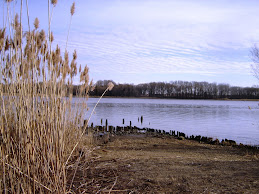



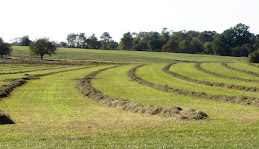









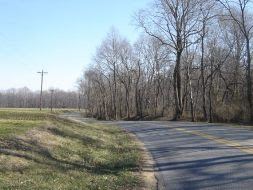















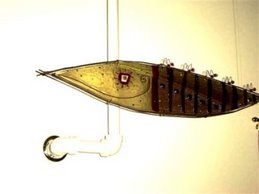



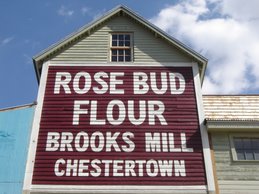
No comments:
Post a Comment